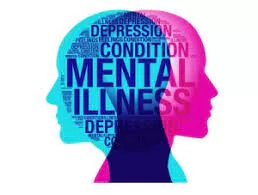Singapore – February 6, 2025 – Could the key to easing anxiety lie within our gut? A groundbreaking study by researchers from Duke-NUS Medical School and the National Neuroscience Institute has uncovered a crucial connection between gut microbes and anxiety, potentially opening the door to new probiotic-based treatments for mental health.
The research, recently published in EMBO Molecular Medicine, highlights the role of microbial metabolites, specifically indoles, in regulating brain activity tied to anxiety. This discovery may lead to innovative therapies targeting the gut-brain axis to alleviate anxiety and other mental health disorders.
The Growing Mental Health Crisis
As mental health issues rise globally, the findings come at a critical time. In Singapore, mental health disorders are on the rise, with 1 in 7 people affected by conditions such as depression and anxiety. In fact, mental health disorders were among the top four leading causes of disease burden in the country as of 2019. This has spurred a concerted effort among scientists to understand the underlying causes of anxiety and explore new treatment options.
Exploring the Microbe-Anxiety Link
To better understand how microbes influence anxiety, the research team investigated the behavior of mice in a germ-free environment. The results were striking: mice without exposure to live microbes exhibited significantly more anxiety-related behavior than those with typical microbial populations. Further investigation showed that this heightened anxiety was tied to increased activity in the basolateral amygdala (BLA), a brain region crucial for processing emotions such as fear.
The scientists discovered that in the presence of live microbes, a specific protein known as the calcium-dependent SK2 channels helps regulate neuronal activity in the BLA, preventing neurons from firing too frequently. This process seems to help modulate anxiety levels.
Associate Professor Shawn Je, a lead author of the study, explained, “Our findings reveal the specific neural processes that link microbes to mental health. The absence of live microbes disrupts brain function, particularly in areas that control fear and anxiety, leading to heightened anxious behavior.”
The Role of Indoles
Further studies revealed that indoles, microbial metabolites produced by certain gut bacteria, played a significant role in this process. When the germ-free mice were given indoles, their anxiety-related behavior decreased, suggesting a direct link between gut microbes and mental health.
Professor Sven Pettersson from the National Neuroscience Institute elaborated, “This study suggests that microbes produce metabolites like indoles, which can regulate anxiety levels. The varying amounts of circulating indoles may explain why some individuals are more susceptible to anxiety, offering a potential pathway for personalized treatments.”
Implications for Mental Health Treatment
These findings pave the way for a new approach to treating anxiety disorders by targeting the gut-brain axis. Probiotics containing indole-producing microbes, or dietary supplements with indoles, could help restore microbial balance in the gut, potentially alleviating anxiety symptoms.
Professor Patrick Tan, Senior Vice-Dean for Research at Duke-NUS, remarked, “Our findings underscore the deep evolutionary connections between microbes, nutrition, and brain function. This research holds immense promise for individuals suffering from stress-related conditions, offering an alternative to traditional psychiatric medications.”
The Road Ahead
The research team now aims to conduct clinical trials to explore whether indole-based probiotics or supplements can effectively treat anxiety in humans. If successful, this approach could revolutionize mental health care, providing a natural solution that harnesses the power of our gut microbes to maintain mental well-being.
Disclaimer: While these findings are promising, clinical trials in humans are still required to determine the safety and efficacy of indole-based treatments. This study is not a substitute for professional medical advice, and individuals experiencing anxiety or other mental health issues should consult with healthcare professionals for appropriate treatment.











